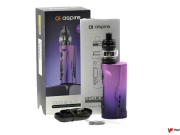The letter asks the WHO to end its war on vaping and other alternatives to smoking, which have been identified by science as effective smoking cessation tools. Discussing the letter, Michael Landl, the director of the World Vapers’ Alliance (WVA), one of the organisations behind the letter, explained that millions of lives could be saved if the WHO would change its stance.
“The WHO has an opportunity to beat smoking for good but instead they choose to turn their guns on vaping and other tools that can reduce the harm of tobacco. The WHO routinely ignores the wealth of scientific evidence pointing to the benefits of these products and the first-hand experience of millions of citizens who have quit smoking for good. Restricting or banning access to vaping, nicotine pouches, snus, and other products will do nothing but cost lives. Millions of lives could be saved if the WHO was really serious about beating smoking.”
The COP9’s Framework Convention on Tobacco Control protocol
The WHO’s global ‘COP 9’ conference, taking place this November, is known to be blindly against vaping and is tragically known to have a great influence on anti-smoking and vaping policies worldwide. Sadly, the COP9’s Framework Convention on Tobacco Control (FCTC) protocol is know to have lost sight of its core objective of reducing smoking, and has become increasingly focused on fighting access to less harmful alternatives that are actually helping millions of smokers worldwide quit smoking.
“200 million lives worldwide could be saved, but as it stands it looks like COP9 will be another anti-science and anti-consumer WHO charade. It is time to actually deliver on the FCTC commitment to tobacco harm reduction by endorsing harm reduction products,” said Landl.
Anti-THR events in Asia
Meanwhile in Asia, in the lead up to the 13th Asia Pacific Conference on Tobacco or Health (APACT) which took place virtually from Bangkok earlier this month, the 11 members of organizations of the Coalition of Asia Pacific Tobacco Harm Reduction Advocates (CAPHRA), signed a declaration promoting THR.
“September marks the start of the secret season which sadly sees supposed ‘tobacco control experts’ playing up to their puppet masters and denying Asia Pacific’s 600 million smokers’ access to safer nicotine products,” said CAPHRA Executive Coordinator Nancy Loucas.
APACT
APACT presented a line up of speakers renowned for their irrational stance on THR. “APACT has wheeled out a totally predictable programme and line up of speakers who share an irrational and untenable position against safer nicotine products such as vaping. Also, in common is that many, if not most, are longtime Bloomberg grant recipients or indirect beneficiaries. Preaching to themselves in their echo chamber, they continue to ignore all the science and the harm they are causing consumers,” explained Loucas.
SEARO and WPRO
While a few days later, the WHO’s South East Asia Regional Office (SEARO) also held its online regional conference, from 6 to 10 September, with the Western Pacific for their Regional Office (WPRO) following from 25 to 29 October.
Discussing these major events, the Asia Pacific Declaration expressed its concern with regards to the influence they will exert on the region’s policy makers. “We are extremely concerned that decisions are being made in various conferences and regional meetings that are not considering the body of scientific evidence that proves the benefits of safer nicotine products.”













